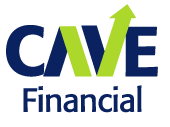Lump-Sum Investments for Your Child
Mon Aug. 5th 2019
Saving for your children's future is a smart way to help them succeed. Even a small lump sum, invested early, can add up to a substantial amount over 10 or 20 years.
Once you decide to make an investment on behalf of your child, the next step is finding the right option. Here we outline some of the best options available.
The options
Saving for your children's future is a smart way to help them succeed. Even a small lump sum, invested early, can add up to a substantial amount over 10 or 20 years.
Once you decide to make an investment on behalf of your child, the next step is finding the right option. Lump-sum investments generally offer higher returns than regular savings over time, as interest will be earned on the full amount from the beginning.
Below we've outlined some of the options available. The best option for you will depend on your financial literacy, financial situation, and appetite for risk.
Kiwisaver for kids
Kiwisaver is a managed fund, which means you contribute money, and a financial manager makes investment decisions on your behalf.
You can set up Kiwisaver accounts for your children when they're born, but the government won't make contributions until they turn 18. Kiwisaver is designed as a retirement fund, so your children won't be able to withdraw funds for their education or for other reasons – the only exception is buying their first home.
Although it may not be as flexible as other options, Kiwisaver does have benefits. The potential for returns is higher than that of a basic savings account. Since you will also be able to making regular contributions later, it's a good tool to teach saving habits. The earlier you get into Kiwisaver, the better, as people who have had an account for five years or more will be entitled to a Homestart grant when they buy their first home.
Investing in shares
Shares are tiny fractions of a company. Owning a share means owning a piece of the company and its value. If you buy shares early, when the company isn't worth much, and hold onto them as the company increases in value, you may make a profit. Some shares also give you a yearly dividend, which is a portion of the company's profit for the year.
Of course, if a company drops in value your investment can shrink, which can be alarming. If you're the sort of person who will check the stock market constantly, this can make investing in shares a stressful option.
Investing in a single company is always a risky option, as all your money is tied to the fortunes of one business. A diverse range of shares spreads the risk and gives you a better chance of a good return.
Where to start
There are a number of ways to get into the share market on behalf of your child.
DIY options include an online broker, a traditional stockbroker, or a financial advisor buying on your behalf. Working with a financial advisor or investment manager also gives you access to expertise, so you're not trying to judge the market on your own.
Joining a managed fund is another simple way to invest. These funds pool investments from small investors, and a paid manager buys and sells on their behalf. Many banks and financial advisers offer this option, and you can also find them online.
Finally, some people choose to invest in their employer, particularly when they offer free or discounted shares as an employee incentive.
Buying shares can be rewarding, but it's not for everyone. If you're financially literate and able to invest a significant sum without hardship, it can be a good option. In most cases, you'll need to leave your investment for years to see a return – but if you're investing for your children, you're looking at the long term anyway.
Investment trusts
Investment trusts are often confused with family trusts, but they are very different. While a family trust is a way to protect your assets, an investment trust is simply another investment option.
This option can offer higher returns than others, but it does require taking on a bit more risk. You'll need to be comfortable with the possibility of getting back less than your original investment. As with most investment options, there will be ups and downs throughout the investment period – if you can ride these out, you're more likely to profit.
There are two types of investment trust: conventional and split capital.
Conventional funds trade shares on the stock exchange like any public company. The price of shares depends on the value of the trust's assets and demand for shares.
Split capital funds, on the other hand, tend to run for a set time – usually five to ten years. They issue a range of different types of share, and pay-outs are made according to share type. This means you can choose a level of risk – and potential return – to suit your comfort level.
Where to start
You can buy shares in an investment trust through a stockbroker or financial advisor, or from an online facility. You can also buy directly from an investment company if you know the trusts you wish to invest in.
Although trusts work best in the long term, you can sell your shares at any point if your situation changes. Just be aware that this may lose you money.
Investing in property
Property investment doesn't have to mean buying a unit or second house for rental. There are a number of other ways to indirectly invest in the property market. Two of the most common are listed property companies and real estate investment trusts.
Property investments tend to be long term, and like all investment options, can fluctuate over time.
Where to start
Listed property companies and real estate investment trusts own, develop, and manage property on behalf of shareholders. You invest by buying shares in the company. If the company does well, you'll get your share of the profit as a yearly dividend, and your shares will increase in value as well.
If the properties your company invests in go up in value, you – or your child – can gain significant returns over time. On the other hand, even though the property market in New Zealand is strong, there is always the possibility of a slump, which could lead to you losing some or all of your investment.
Risks and rewards
Investments always come with some level of risk. No matter how carefully you choose an investment company, there's no way to guarantee performance or returns.
The good news is: if you spread your investments out and settle in for the long term, you're more likely to be successful. Because long term investments ride out small fluctuations in the market, they tend to perform better over time.
If you make a smart lump-sum investment for your child now, it will have years or decades to mature, and your child is likely to benefit from a significant return in the long run.
Whether you're keen to invest in Kiwisaver, shares, or property, talking to an authorised financial adviser is the best way to make the right decision for you and your child.
Talk to the team at Cave Financial for advice.

Need our help?
We're here to answer your questions.
service@cavefinancial.co.nz
09 302 7310
1D Roberta Avenue
Glendowie
Auckland 1071
New Zealand


